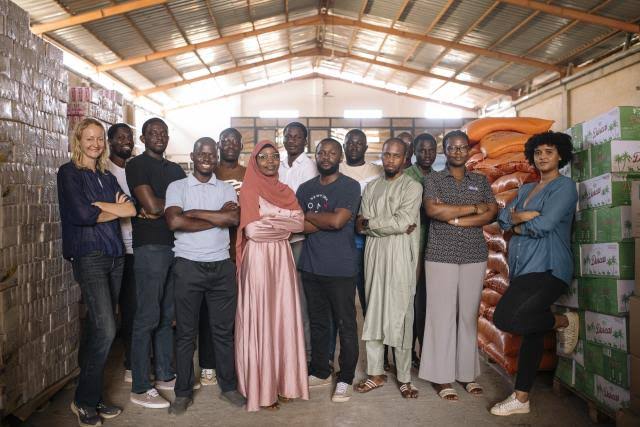Maad, a Senegalese B2B e-commerce firm, raised $3.2 million to expand across Western Africa and Francophone regions.
The Senegalese business-to-business e-commerce firm Maad has raised $3.2 million in debt and equity capital to fuel its expansion across Western Africa and discover new prospects in the Francophone area.
Ventures Platform spearheaded the seed round, which also included participation from Alumni Ventures, Seedstars International Ventures, Oui Capital, Launch Africa, Voltron Capital, and Reflect Ventures. It secured $900,000 in debt funding from local banks and the French DFI Proparco.
To address important challenges such as stockouts and high inventory costs caused by numerous levels of dealers, Maad’s end-to-end distribution network allows informal retailers, also known as mom-and-pop businesses, to purchase fast-moving consumer goods (FMCG) directly from partner suppliers.
CEO Sidy Niang and COO Jessica Long founded Maad in 2020. Originally, the company aimed to collect data, but later on, they shifted their focus to developing software that organizations could use to handle their internal distribution. Inspired by how FMCG suppliers used the software to handle distribution difficulties, the company launched the B2B e-commerce business in September 2021.
What motivated us was seeing how our customers used our product in their own distribution. Niang informed the media that the software was already highly beneficial and that consolidating all the purchases made by small stores onto a single platform could potentially create even more value.
The startup’s in-house delivery service helps keep costs down and service consistency high. The majority of customers place orders using the app, field agents, or the call center. The company’s warehouses fulfill the remaining 25% of orders.
“We made the decision to add all of the logistics…” We do this because the business has a poor profit margin. To satisfy our customers’ demands for dependability, we believe this is the best way to deliver excellent service. Using a third-party vendor would prevent us from providing a comparable service, according to Long.
With its network of 80 suppliers, the firm has grown to serve 6,500 active shops and claims to have surpassed $3 million in monthly GMV. Maad claims that its inexpensive prices and unique access to certain commodities, facilitated by its close relationships with suppliers, attract informal retailers to its products.
Because of their close proximity to consumers, these stores play a significant role in the distribution of items from manufacturers to households in sub-Saharan Africa, accounting for around 80% of retail sales.
While informal shops face difficulties with inventory sourcing and finance, startups like Maad are collecting data on products and retailers to help suppliers make better business decisions.
At a time when investors are still wary of backing business-to-business (B2B) e-commerce companies in Africa owing to their capital-intensive models and razor-thin margins, Maad has managed to raise funding.
This has resulted in the shutdown of RejaReja, founded by Zumi and other YC alums, as well as the scaling back of Wabi, Wasoko, and MaxAB. Following a funding boom in 2021 and 2022, the sector is now experiencing this.
By the year’s end, the startup—which boasts a first-mover advantage in Senegal—hopes to have expanded its coverage to encompass more rural areas of the country and broken into a new market in Francophone regions. To further facilitate shop owners’ access to merchandise on credit, it intends to launch a buy now, pay later (BNPL) service.












